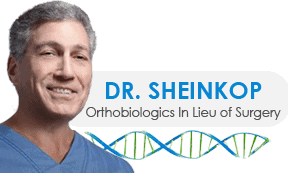Stem cells are the body’s raw materials — cells from which all other cells with specialized functions are generated. Under the right conditions in the body, stem cells divide to form more cells called daughter cells. These daughter cells either become new stem cells (self-renewal) or become specialized cells (differentiation) with a more specific function, such as blood cells, cartilage or bone. No other cell in the body has the natural ability to generate new cell types.
Where do stem cells come from?
- Embryonic stem cells. These stem cells come from embryos that are three to five days old. At this stage, an embryo is called a blastocyst and has about 150 cells. These are pluripotent stem cells, meaning they can divide into more stem cells or can become any type of cell in the body. This versatility allows embryonic stem cells to be used to regenerate or repair diseased tissue and organs, although their use in people has been to date limited to eye-related disorders such as macular degeneration.
- Adult stem cells. Such stem cells are found in small numbers in most adult tissues, such as bone marrow or fat. Compared with embryonic stem cells, adult stem cells have a more limited ability to give rise to various cells of the body.
Until recently, researchers thought adult stem cells could create only similar types of cells. For instance, researchers thought that stem cells residing in the bone marrow could give rise only to blood cells. However, emerging evidence has demonstrated that adult stem cells are able to create unrelated types of cells. For instance, bone marrow stem cells are able to create bone or cartilage cells. This research has led to our clinical trials and interventions in the arthritic joint.
- Pluirpotent stem cells. Adult cells altered to have properties of embryonic stem cells (induced pluripotent stem cells). Scientists have successfully transformed regular adult cells into stem cells using genetic reprogramming. By altering the genes in the adult cells, researchers can reprogram the cells to act similarly to embryonic stem cells. The clinical application is yet to come to clinical trial for arthritis.
- Perinatal stem cells. Researchers have discovered stem cells in amniotic fluid in addition to umbilical cord blood stem cells. These stem cells also have the ability to change into specialized cells. More study of amniotic fluid stem cells is needed to understand their potential.
Adult Mesenchymal Stem Cells found in bone marrow are now being successfully used in an attempt to help the patient with an arthritic joint postpone or possibly avoid a joint replacement. There are an increasing number of companies and regenerative medical specialists involved in the field with many variables and all stem cell preparations are not the same. At Regenexx, we have developed techniques for extracting adult mesenchymal stem cells from your aspirated bone marrow, concentrating them and injecting the materials recovered and concentrated into your arthritic joint. To learn more, follow this blog. To keep up to date on new developments and the introduction of clinical trials for an arthritic joint, follow the Regenexx web site at www.regenexx.com.
